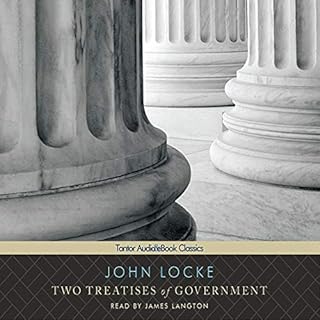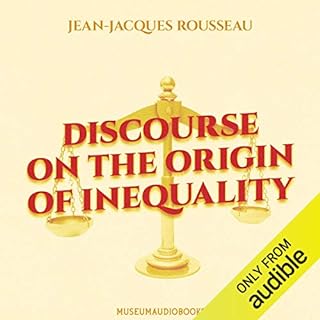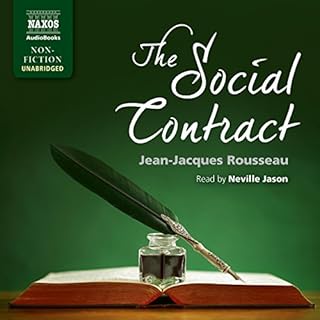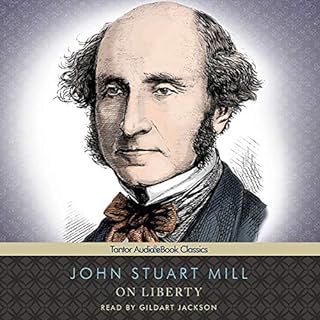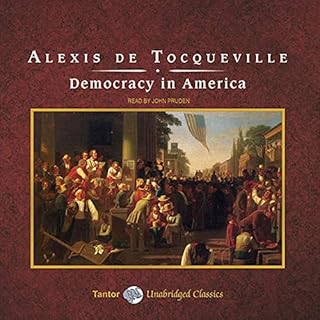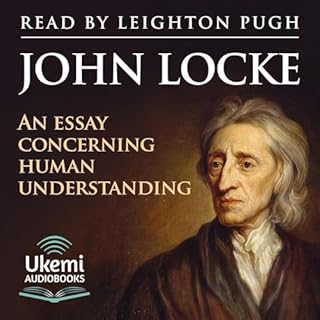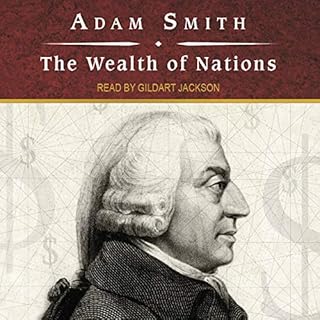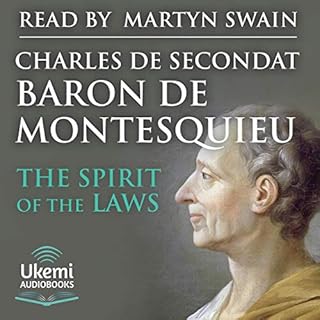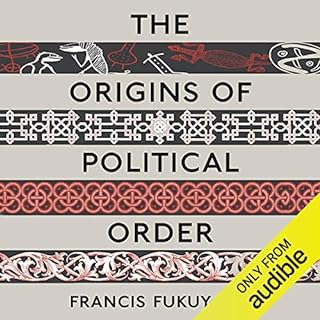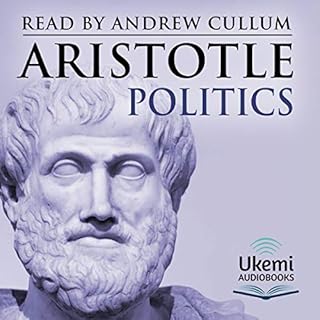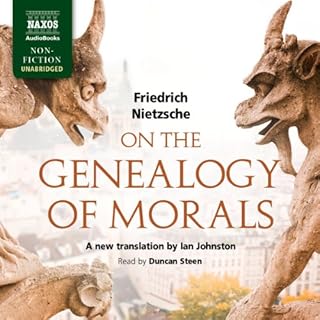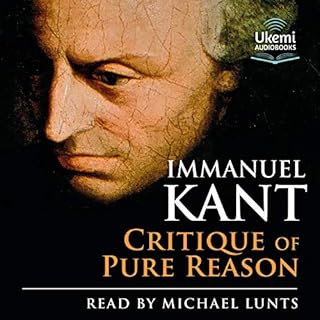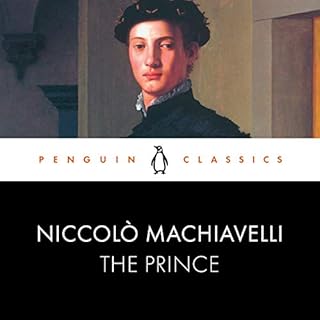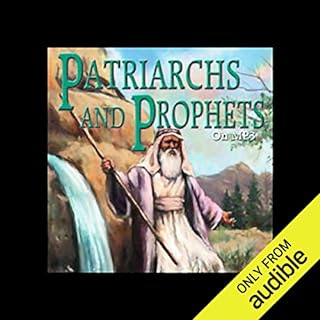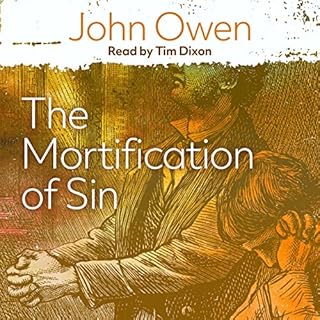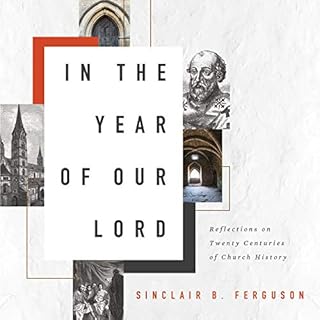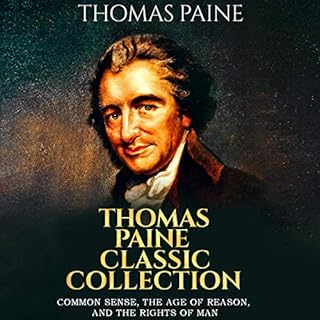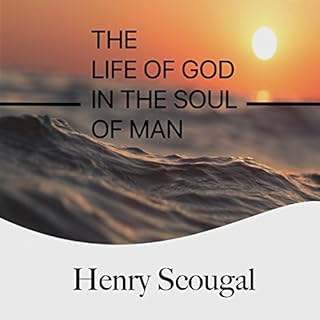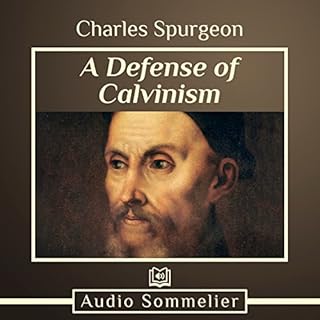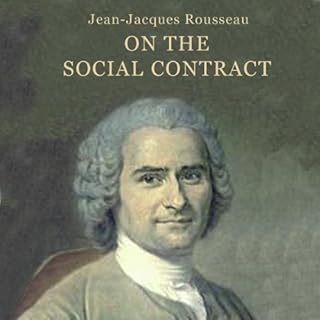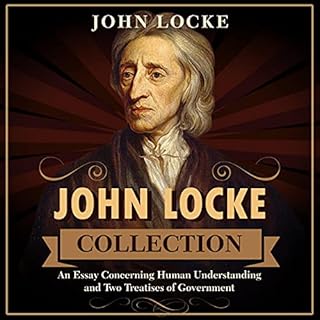-
Leviathan
- or The Matter, Form, and Power of a Commonwealth, Ecclesiastical and Civil
- Narrated by: James Adams
- Length: 23 hrs and 17 mins
Failed to add items
Add to Cart failed.
Add to Wish List failed.
Remove from wishlist failed.
Adding to library failed
Follow podcast failed
Unfollow podcast failed
 Prime members: New to Audible?
Prime members: New to Audible?Get 2 free audiobooks during trial.
Buy for $24.92
No default payment method selected.
We are sorry. We are not allowed to sell this product with the selected payment method
Publisher's summary
The leviathan is the vast unity of the State. But how are unity, peace, and security to be attained? Hobbes’ answer is sovereignty, but the resurgence of interest today in Leviathan is due less to its answers than its methods: Hobbes sees politics as a science capable of the same axiomatic approach as geometry.
Written during the turmoil of the English Civil War, Leviathan was, in Hobbes’ lifetime, publicly burnt and even condemned in Parliament as one of the causes of the Great Fire of London in 1666. Its current appeal lies not just in its elevation of politics to a science, but in its overriding concern for peace, its systematic analysis of power, and its convincing apologia for the then-emergent market society in which we still live.
Listeners also enjoyed...
-
A Theologico-Political Treatise/A Political Treatise
- By: Baruch Spinoza
- Narrated by: Leighton Pugh
- Length: 16 hrs and 4 mins
- Unabridged
-
Overall5 out of 5 stars 38
-
Performance5 out of 5 stars 30
-
Story5 out of 5 stars 30
Though it first aroused anger and controversy rather than admiration and acceptance, A Theologico-Political Treatise was a landmark in the analysis of theology (with particular reference to the Bible and its Jewish and Christian interpretations) and its relationship to philosophy and politics. Spinoza’s scholarly analysis, based on careful study, demonstrated that the Bible was composed by many writers over the centuries - and that even the Pentateuch, the first five books, were not the work of Moses, as was generally assumed at the time.
-
5 out of 5 stars
-
Great until the last ~2 minutes
- By Julia S. on 06-02-22
By: Baruch Spinoza
-
Two Treatises of Government
- By: John Locke
- Narrated by: James Langton
- Length: 10 hrs and 2 mins
- Unabridged
-
Overall4.5 out of 5 stars 501
-
Performance4.5 out of 5 stars 435
-
Story4.5 out of 5 stars 426
Often considered the foundation of political liberalism, John Locke's Two Treatises of Government was first published anonymously in 1689, in the wake of England's Glorious Revolution. In The First Treatise of Government, Locke refutes the idea of divine monarchy, while The Second Treatise of Government articulates Locke's philosophy of government, which he based upon his theories of natural rights and the social contract.
-
5 out of 5 stars
-
Don't let the title scare you off!
- By Travis on 07-09-12
By: John Locke
-
Discourse on the Origin of Inequality
- By: Jean-Jacques Rousseau
- Narrated by: Adriel Brandt
- Length: 2 hrs and 30 mins
- Unabridged
-
Overall4.5 out of 5 stars 16
-
Performance5 out of 5 stars 10
-
Story4.5 out of 5 stars 10
Discourse on the Origin and Basis of Inequality Among Men by the philosopher Jean-Jacques Rousseau was originally written for an essay competition run by the Dijon Academy of Arts and Sciences in 1754. The question was, "What is the origin of inequality among men, and is it authorized by the natural law?" Rousseau's text is divided into four main parts: a dedication, preface, an extended inquiry into the nature of the individual, and another inquiry into the evolution of the human species within society.
-
The Social Contract
- By: Jean-Jacques Rousseau
- Narrated by: Neville Jason
- Length: 6 hrs and 16 mins
- Unabridged
-
Overall4.5 out of 5 stars 76
-
Performance4.5 out of 5 stars 61
-
Story4 out of 5 stars 61
Man is born free, and everywhere he is in chains. In The Social Contract, Rousseau explores the concept of freedom and the political structures that may enable people to acquire it. He argues that the sovereign power of a state lies not in any one ruler but in the will of the general population. Rousseau argues that the ideal state would be a direct democracy where executive decision making is carried out by citizens who meet in assembly, as they would in the ancient city-state of Athens.
-
5 out of 5 stars
-
Rosseau's works
- By Anonymous User on 07-24-19
-
The Second Treatise on Civil Government
- By: John Locke
- Narrated by: Michael Anthony
- Length: 6 hrs and 34 mins
- Unabridged
-
Overall4.5 out of 5 stars 17
-
Performance3.5 out of 5 stars 15
-
Story4.5 out of 5 stars 15
The English philosopher and physician John Locke (1632 - 1704) is widely regarded as one of the most influential of Enlightenment thinkers. His work had a significant effect on the development of epistemology and political philosophy. The Second Treatise on Civil Government places sovereignty in the hands of the people, as Locke's fundamental argument is that people are equal and invested with natural rights in a state of nature in which they live free from outside rule.
-
5 out of 5 stars
-
Comments from a reader
- By Kindle Customer on 12-28-20
By: John Locke
-
On Liberty
- By: John Stuart Mill
- Narrated by: Gildart Jackson
- Length: 4 hrs and 58 mins
- Unabridged
-
Overall4.5 out of 5 stars 692
-
Performance4.5 out of 5 stars 592
-
Story4.5 out of 5 stars 587
First published in 1859, John Stuart Mill's On Liberty is an exhaustive exploration of social and civic liberty, its limits, and its consequences. Mill's work is a classic of political liberalism that contains a rational justification of the freedom of the individual in opposition to the claims of the state.
-
5 out of 5 stars
-
should be read by liberals and conservatives
- By Jim Hennessy on 09-13-18
By: John Stuart Mill
-
A Theologico-Political Treatise/A Political Treatise
- By: Baruch Spinoza
- Narrated by: Leighton Pugh
- Length: 16 hrs and 4 mins
- Unabridged
-
Overall5 out of 5 stars 38
-
Performance5 out of 5 stars 30
-
Story5 out of 5 stars 30
Though it first aroused anger and controversy rather than admiration and acceptance, A Theologico-Political Treatise was a landmark in the analysis of theology (with particular reference to the Bible and its Jewish and Christian interpretations) and its relationship to philosophy and politics. Spinoza’s scholarly analysis, based on careful study, demonstrated that the Bible was composed by many writers over the centuries - and that even the Pentateuch, the first five books, were not the work of Moses, as was generally assumed at the time.
-
5 out of 5 stars
-
Great until the last ~2 minutes
- By Julia S. on 06-02-22
By: Baruch Spinoza
-
Two Treatises of Government
- By: John Locke
- Narrated by: James Langton
- Length: 10 hrs and 2 mins
- Unabridged
-
Overall4.5 out of 5 stars 501
-
Performance4.5 out of 5 stars 435
-
Story4.5 out of 5 stars 426
Often considered the foundation of political liberalism, John Locke's Two Treatises of Government was first published anonymously in 1689, in the wake of England's Glorious Revolution. In The First Treatise of Government, Locke refutes the idea of divine monarchy, while The Second Treatise of Government articulates Locke's philosophy of government, which he based upon his theories of natural rights and the social contract.
-
5 out of 5 stars
-
Don't let the title scare you off!
- By Travis on 07-09-12
By: John Locke
-
Discourse on the Origin of Inequality
- By: Jean-Jacques Rousseau
- Narrated by: Adriel Brandt
- Length: 2 hrs and 30 mins
- Unabridged
-
Overall4.5 out of 5 stars 16
-
Performance5 out of 5 stars 10
-
Story4.5 out of 5 stars 10
Discourse on the Origin and Basis of Inequality Among Men by the philosopher Jean-Jacques Rousseau was originally written for an essay competition run by the Dijon Academy of Arts and Sciences in 1754. The question was, "What is the origin of inequality among men, and is it authorized by the natural law?" Rousseau's text is divided into four main parts: a dedication, preface, an extended inquiry into the nature of the individual, and another inquiry into the evolution of the human species within society.
-
The Social Contract
- By: Jean-Jacques Rousseau
- Narrated by: Neville Jason
- Length: 6 hrs and 16 mins
- Unabridged
-
Overall4.5 out of 5 stars 76
-
Performance4.5 out of 5 stars 61
-
Story4 out of 5 stars 61
Man is born free, and everywhere he is in chains. In The Social Contract, Rousseau explores the concept of freedom and the political structures that may enable people to acquire it. He argues that the sovereign power of a state lies not in any one ruler but in the will of the general population. Rousseau argues that the ideal state would be a direct democracy where executive decision making is carried out by citizens who meet in assembly, as they would in the ancient city-state of Athens.
-
5 out of 5 stars
-
Rosseau's works
- By Anonymous User on 07-24-19
-
The Second Treatise on Civil Government
- By: John Locke
- Narrated by: Michael Anthony
- Length: 6 hrs and 34 mins
- Unabridged
-
Overall4.5 out of 5 stars 17
-
Performance3.5 out of 5 stars 15
-
Story4.5 out of 5 stars 15
The English philosopher and physician John Locke (1632 - 1704) is widely regarded as one of the most influential of Enlightenment thinkers. His work had a significant effect on the development of epistemology and political philosophy. The Second Treatise on Civil Government places sovereignty in the hands of the people, as Locke's fundamental argument is that people are equal and invested with natural rights in a state of nature in which they live free from outside rule.
-
5 out of 5 stars
-
Comments from a reader
- By Kindle Customer on 12-28-20
By: John Locke
-
On Liberty
- By: John Stuart Mill
- Narrated by: Gildart Jackson
- Length: 4 hrs and 58 mins
- Unabridged
-
Overall4.5 out of 5 stars 692
-
Performance4.5 out of 5 stars 592
-
Story4.5 out of 5 stars 587
First published in 1859, John Stuart Mill's On Liberty is an exhaustive exploration of social and civic liberty, its limits, and its consequences. Mill's work is a classic of political liberalism that contains a rational justification of the freedom of the individual in opposition to the claims of the state.
-
5 out of 5 stars
-
should be read by liberals and conservatives
- By Jim Hennessy on 09-13-18
By: John Stuart Mill
-
Democracy in America
- By: Alexis de Tocqueville
- Narrated by: John Pruden
- Length: 34 hrs and 4 mins
- Unabridged
-
Overall4.5 out of 5 stars 724
-
Performance4.5 out of 5 stars 595
-
Story4.5 out of 5 stars 603
In 1831, Alexis de Tocqueville, a young French aristocrat and civil servant, made a nine-month journey through the eastern United States. The result was Democracy in America, a monumental study of the strengths and weaknesses of the nation’s evolving politics. His insightful work has become one of the most influential political texts ever written on America.
-
4 out of 5 stars
-
Most Listenable, if not the Best Translation
- By Michael Allen on 10-04-13
-
Leviathan
- By: Thomas Hobbes
- Narrated by: David McCallion
- Length: 22 hrs and 23 mins
- Unabridged
-
Overall4.5 out of 5 stars 59
-
Performance4.5 out of 5 stars 51
-
Story4.5 out of 5 stars 51
Published in 1651, Leviathan is considered to be one of the most important works of political philosophy and a major contribution to the modern idea of central government. In the mid-17th century, England was going through a turbulent time of change and unrest, which likely shaped Hobbes' ideas on strong government. Thomas Hobbes established the social contract theory. He believed that self-government did not create the ideal state due to the human tendency to be self-serving, something he believed would eventually lead to chaos.
-
5 out of 5 stars
-
For the philosophical minds
- By Nicole on 07-15-17
By: Thomas Hobbes
-
An Essay Concerning Human Understanding
- By: John Locke
- Narrated by: Leighton Pugh
- Length: 30 hrs and 20 mins
- Unabridged
-
Overall4.5 out of 5 stars 78
-
Performance4.5 out of 5 stars 65
-
Story4.5 out of 5 stars 65
John Locke and his works - particularly An Essay Concerning Human Understanding - are regularly and rightly presented as foundations for the Age of Enlightenment. His primary epistemological message - that the mind at birth is a blank sheet waiting to be filled by the experiences of the senses - complemented his primary political message: that human beings are free and equal and have the right to envision, create and direct the governments that rule them and the societies within which they live.
-
5 out of 5 stars
-
Exhaustive Philosophic Treatise
- By No to Statism on 09-25-18
By: John Locke
-
The Wealth of Nations
- By: Adam Smith
- Narrated by: Gildart Jackson
- Length: 36 hrs and 43 mins
- Unabridged
-
Overall4.5 out of 5 stars 1,560
-
Performance4.5 out of 5 stars 1,304
-
Story4.5 out of 5 stars 1,293
The foundation for all modern economic thought and political economy, The Wealth of Nations is the magnum opus of Scottish economist Adam Smith, who introduces the world to the very idea of economics and capitalism in the modern sense of the words.
-
4 out of 5 stars
-
ADAM SMITH
- By chetyarbrough.blog on 01-20-15
By: Adam Smith
-
The Spirit of the Laws
- By: Charles de Secondat Baron de Montesquieu
- Narrated by: Martyn Swain
- Length: 23 hrs and 36 mins
- Unabridged
-
Overall4.5 out of 5 stars 33
-
Performance5 out of 5 stars 28
-
Story4.5 out of 5 stars 28
From the moment of its publication in 1748, The Spirit of the Laws proved to be a controversial work provoking widespread interest. Within three years it had been translated into various European languages - and was swiftly added to the List of Prohibited Books by the Roman Catholic Church. It is a remarkable book, a potpourri of observations and comments ranging far and wide over the social activities of mankind and it exerted a great influence on political leaders in the following decades.
-
5 out of 5 stars
-
Truly Excellent Audiobook!
- By No to Statism on 09-09-19
-
The Origins of Political Order: From Prehuman Times to the French Revolution
- By: Francis Fukuyama
- Narrated by: Jonathan Davis
- Length: 22 hrs and 34 mins
- Unabridged
-
Overall4.5 out of 5 stars 2,907
-
Performance4.5 out of 5 stars 2,483
-
Story4.5 out of 5 stars 2,459
Virtually all human societies were once organized tribally, yet over time most developed new political institutions which included a central state that could keep the peace and uniform laws that applied to all citizens. Some went on to create governments that were accountable to their constituents. We take these institutions for granted, but they are absent or are unable to perform in many of today’s developing countries—with often disastrous consequences for the rest of the world.
-
3 out of 5 stars
-
Few forests, but lots of trees
- By Steve Pagano on 10-05-15
By: Francis Fukuyama
-
Plato's Republic
- By: Plato
- Narrated by: Ray Childs
- Length: 11 hrs and 46 mins
- Unabridged
-
Overall4.5 out of 5 stars 1,531
-
Performance4.5 out of 5 stars 1,332
-
Story4.5 out of 5 stars 1,313
The Republic poses questions that endure: What is justice? What form of community fosters the best possible life for human beings? What is the nature and destiny of the soul? What form of education provides the best leaders for a good republic? What are the various forms of poetry and the other arts, and which ones should be fostered and which ones should be discouraged? How does knowing differ from believing?
-
1 out of 5 stars
-
BEWARE: shortened version
- By Dranu on 03-08-20
By: Plato
-
Politics
- By: Aristotle
- Narrated by: Andrew Cullum
- Length: 10 hrs and 4 mins
- Unabridged
-
Overall4.5 out of 5 stars 79
-
Performance4.5 out of 5 stars 71
-
Story4.5 out of 5 stars 72
The title Politics literally means ‘the things concerning the city’. Here, Aristotle considers the important role that politics plays in the life of the community and its contribution to harmonious and virtuous existence. It is divided into eight books and was a cornerstone in political philosophy for centuries despite certain features - including attitudes towards slaves and women - clearly placing its conclusions and advice within the confines of Athenian society of the fourth century BCE.
-
3 out of 5 stars
-
I suspect a poor translation
- By Andrew George on 07-22-20
By: Aristotle
-
On the Genealogy of Morals
- A Polemic
- By: Friedrich Nietzsche
- Narrated by: Duncan Steen
- Length: 6 hrs and 33 mins
- Unabridged
-
Overall4.5 out of 5 stars 466
-
Performance4.5 out of 5 stars 410
-
Story4.5 out of 5 stars 403
In On the Genealogy of Morals, subtitled "A Polemic", Nietzsche furthers his pursuit of a clarity that is less tainted by imposed prejudices. He looks at the way attitudes towards 'morality' evolved and the way congenital ideas of morality were heavily colored by the Judaic and Christian traditions.
-
5 out of 5 stars
-
Be strong, not weak.
- By Wayne on 06-24-13
-
Critique of Pure Reason
- By: Immanuel Kant
- Narrated by: Michael Lunts
- Length: 27 hrs and 38 mins
- Unabridged
-
Overall5 out of 5 stars 16
-
Performance5 out of 5 stars 15
-
Story4.5 out of 5 stars 14
Immanuel Kant’s Critique of Pure Reason can lay claim to being the most important single work of modern philosophy, a work whose methodology, if not necessarily always its conclusions, has had a profound influence on almost all subsequent philosophical discourse. In this work Kant addresses, in a groundbreaking elucidation of the nature of reason, the age-old question of philosophy: “How do we know what we know?” and the limits of what it is that we can know with certainty.
-
5 out of 5 stars
-
Another Great Recording by Ukemi
- By Jack on 03-27-21
By: Immanuel Kant
-
The Prince
- Penguin Classics
- By: George Bull - translator, Niccolò Machiavelli
- Narrated by: Simon Callow
- Length: 3 hrs and 35 mins
- Unabridged
-
Overall4.5 out of 5 stars 129
-
Performance5 out of 5 stars 101
-
Story4.5 out of 5 stars 100
As a diplomat in turbulent 15th-century Florence, Niccolò Machiavelli knew how quickly political fortunes could rise and fall. The Prince, his tough-minded, pragmatic handbook on how power really works, made his name notorious and has remained controversial ever since. How can a leader be strong and decisive yet still inspire loyalty in his followers? When is it necessary to break the rules? Is it better to be feared than loved?
-
5 out of 5 stars
-
Why I purchased this version
- By Amazon Customer on 06-27-21
By: George Bull - translator, and others
-
Modern Times
- The World from the Twenties to the Nineties
- By: Paul Johnson
- Narrated by: Nadia May
- Length: 37 hrs and 53 mins
- Unabridged
-
Overall4.5 out of 5 stars 441
-
Performance4 out of 5 stars 314
-
Story4.5 out of 5 stars 312
Beginning with May 29, 1919, when photographs of the solar eclipse confirmed the truth of Einstein's theory of relativity, Johnson goes on to describe Freudianism, the establishment of the first Marxist state, the chaos of "Old Europe", the Arcadian 20s, and the new forces in China and Japan. Also discussed are Karl Marx, Hitler, Mussolini, Stalin, Roosevelt, Gandhi, Castro, Kennedy, Nixon, the '29 crash, the Great Depression, Roosevelt's New Deal, and the massive conflict of World War II.
-
5 out of 5 stars
-
The Anti-Howard Zinn
- By Pork C. Fish on 05-22-12
By: Paul Johnson
Critic reviews
Related to this topic
-
Leviathan
- By: Thomas Hobbes
- Narrated by: David McCallion
- Length: 22 hrs and 23 mins
- Unabridged
-
Overall4.5 out of 5 stars 59
-
Performance4.5 out of 5 stars 51
-
Story4.5 out of 5 stars 51
Published in 1651, Leviathan is considered to be one of the most important works of political philosophy and a major contribution to the modern idea of central government. In the mid-17th century, England was going through a turbulent time of change and unrest, which likely shaped Hobbes' ideas on strong government. Thomas Hobbes established the social contract theory. He believed that self-government did not create the ideal state due to the human tendency to be self-serving, something he believed would eventually lead to chaos.
-
5 out of 5 stars
-
For the philosophical minds
- By Nicole on 07-15-17
By: Thomas Hobbes
-
The City of God
- By: Saint Augustine
- Narrated by: Bernard Mayes
- Length: 47 hrs and 41 mins
- Unabridged
-
Overall4 out of 5 stars 327
-
Performance4 out of 5 stars 248
-
Story4.5 out of 5 stars 249
Written between A.D. 413 and 426, The City of God is one of the great cornerstones in the history of Christian thought, a book which is vital to the understanding of modern Western society. Augustine originally intended it to be an apology for Christianity against the accusation that the Church was responsible for the decline of the Roman Empire, which had occurred just three years earlier. Indeed, Augustine produced a great amount of evidence to prove that paganism was responsible for this event. However, by the time the work was finished, the book had taken on a larger theme.
-
4 out of 5 stars
-
Great book! If you can get through it.
- By John on 10-23-09
By: Saint Augustine
-
My Religion
- By: Leo Tolstoy
- Narrated by: Bob Souer
- Length: 6 hrs and 53 mins
- Unabridged
-
Overall4.5 out of 5 stars 45
-
Performance4.5 out of 5 stars 42
-
Story4.5 out of 5 stars 42
In My Religion, Leo Tolstoy accuses the church of hiding the true meaning of Jesus, which is to be found in the Sermon on the Mount and the call to resist evil. For Tolstoy, it is this command that has been most damaged by ecclesiastical interpretation. Tolstoy had not always been possessed of the religious ideas set forth in My Religion. For 35 years of his life, he was, in the proper acceptation of the word, a nihilist - not a revolutionary socialist but a man who believed in nothing.
-
5 out of 5 stars
-
Why Did We Not Read This In Bible College?
- By JustinBatzUS on 12-09-16
By: Leo Tolstoy
-
Patriarchs and Prophets
- How it All Began
- By: Ellen G. White
- Narrated by: Eddie Hernandez
- Length: 28 hrs and 27 mins
- Unabridged
-
Overall4.5 out of 5 stars 261
-
Performance4.5 out of 5 stars 198
-
Story5 out of 5 stars 198
How did the universe begin? How did the world get here? Where and how did the human race start? Patriarchs and Prophets is a book about beginnings. In fascinating, easy-to-understand language, it describes exactly how planet Earth, and the people who live on it, began.
-
5 out of 5 stars
-
Im satisfied with this
- By Nefel on 02-02-09
By: Ellen G. White
-
The Doctrine of Revelation
- By: Arthur W. Pink
- Narrated by: Jim Denison
- Length: 13 hrs and 15 mins
- Unabridged
-
Overall5 out of 5 stars 36
-
Performance5 out of 5 stars 32
-
Story4.5 out of 5 stars 32
Doubt as to moral and spiritual truth is distilled through a score of channels. Our seats of learning are hotbeds of agnosticism. Our literature, with rare exceptions, makes light of God and jokes about sacred things. The newspapers, the radio broadcasts, public utterances, and private conversations are steadily but surely removing the foundations of righteousness and destroying what little faith in spiritual things still remain.
-
5 out of 5 stars
-
Very Deep, Very Moving, Very Satisfying!
- By Patrick PK on 02-19-16
By: Arthur W. Pink
-
The Mortification of Sin
- By: John Owen
- Narrated by: Tim H. Dixon
- Length: 4 hrs and 36 mins
- Unabridged
-
Overall5 out of 5 stars 38
-
Performance5 out of 5 stars 30
-
Story5 out of 5 stars 30
In The Mortification of Sin, Owen states not only that sin remains an active and negative force on the lives of Christians, but also that there is a highly effective way to combat that evil force and temptation along with it. Largely addressing Romans 8, this work extracts understanding and brings clarity to the listener on these widely discussed topics. Despite such a potentially disheartening revelation of the impact and influence of sin, Owen reminds the listener of the triumph of Christ.
-
5 out of 5 stars
-
Skilled narrator
- By Raggle on 03-27-23
By: John Owen
-
Leviathan
- By: Thomas Hobbes
- Narrated by: David McCallion
- Length: 22 hrs and 23 mins
- Unabridged
-
Overall4.5 out of 5 stars 59
-
Performance4.5 out of 5 stars 51
-
Story4.5 out of 5 stars 51
Published in 1651, Leviathan is considered to be one of the most important works of political philosophy and a major contribution to the modern idea of central government. In the mid-17th century, England was going through a turbulent time of change and unrest, which likely shaped Hobbes' ideas on strong government. Thomas Hobbes established the social contract theory. He believed that self-government did not create the ideal state due to the human tendency to be self-serving, something he believed would eventually lead to chaos.
-
5 out of 5 stars
-
For the philosophical minds
- By Nicole on 07-15-17
By: Thomas Hobbes
-
The City of God
- By: Saint Augustine
- Narrated by: Bernard Mayes
- Length: 47 hrs and 41 mins
- Unabridged
-
Overall4 out of 5 stars 327
-
Performance4 out of 5 stars 248
-
Story4.5 out of 5 stars 249
Written between A.D. 413 and 426, The City of God is one of the great cornerstones in the history of Christian thought, a book which is vital to the understanding of modern Western society. Augustine originally intended it to be an apology for Christianity against the accusation that the Church was responsible for the decline of the Roman Empire, which had occurred just three years earlier. Indeed, Augustine produced a great amount of evidence to prove that paganism was responsible for this event. However, by the time the work was finished, the book had taken on a larger theme.
-
4 out of 5 stars
-
Great book! If you can get through it.
- By John on 10-23-09
By: Saint Augustine
-
My Religion
- By: Leo Tolstoy
- Narrated by: Bob Souer
- Length: 6 hrs and 53 mins
- Unabridged
-
Overall4.5 out of 5 stars 45
-
Performance4.5 out of 5 stars 42
-
Story4.5 out of 5 stars 42
In My Religion, Leo Tolstoy accuses the church of hiding the true meaning of Jesus, which is to be found in the Sermon on the Mount and the call to resist evil. For Tolstoy, it is this command that has been most damaged by ecclesiastical interpretation. Tolstoy had not always been possessed of the religious ideas set forth in My Religion. For 35 years of his life, he was, in the proper acceptation of the word, a nihilist - not a revolutionary socialist but a man who believed in nothing.
-
5 out of 5 stars
-
Why Did We Not Read This In Bible College?
- By JustinBatzUS on 12-09-16
By: Leo Tolstoy
-
Patriarchs and Prophets
- How it All Began
- By: Ellen G. White
- Narrated by: Eddie Hernandez
- Length: 28 hrs and 27 mins
- Unabridged
-
Overall4.5 out of 5 stars 261
-
Performance4.5 out of 5 stars 198
-
Story5 out of 5 stars 198
How did the universe begin? How did the world get here? Where and how did the human race start? Patriarchs and Prophets is a book about beginnings. In fascinating, easy-to-understand language, it describes exactly how planet Earth, and the people who live on it, began.
-
5 out of 5 stars
-
Im satisfied with this
- By Nefel on 02-02-09
By: Ellen G. White
-
The Doctrine of Revelation
- By: Arthur W. Pink
- Narrated by: Jim Denison
- Length: 13 hrs and 15 mins
- Unabridged
-
Overall5 out of 5 stars 36
-
Performance5 out of 5 stars 32
-
Story4.5 out of 5 stars 32
Doubt as to moral and spiritual truth is distilled through a score of channels. Our seats of learning are hotbeds of agnosticism. Our literature, with rare exceptions, makes light of God and jokes about sacred things. The newspapers, the radio broadcasts, public utterances, and private conversations are steadily but surely removing the foundations of righteousness and destroying what little faith in spiritual things still remain.
-
5 out of 5 stars
-
Very Deep, Very Moving, Very Satisfying!
- By Patrick PK on 02-19-16
By: Arthur W. Pink
-
The Mortification of Sin
- By: John Owen
- Narrated by: Tim H. Dixon
- Length: 4 hrs and 36 mins
- Unabridged
-
Overall5 out of 5 stars 38
-
Performance5 out of 5 stars 30
-
Story5 out of 5 stars 30
In The Mortification of Sin, Owen states not only that sin remains an active and negative force on the lives of Christians, but also that there is a highly effective way to combat that evil force and temptation along with it. Largely addressing Romans 8, this work extracts understanding and brings clarity to the listener on these widely discussed topics. Despite such a potentially disheartening revelation of the impact and influence of sin, Owen reminds the listener of the triumph of Christ.
-
5 out of 5 stars
-
Skilled narrator
- By Raggle on 03-27-23
By: John Owen
-
How Great Is Our God
- Classic Writings from History's Greatest Christian Thinkers in Contemporary Language
- By: Ignatius, John Calvin, Augustine, and others
- Narrated by: Bill DeWees
- Length: 13 hrs and 28 mins
- Unabridged
-
Overall4 out of 5 stars 161
-
Performance4 out of 5 stars 127
-
Story4 out of 5 stars 130
Daily readings drawn from every century and every tradition of the Christian faith. Christianity through the ages... Ignatius, C.S. Lewis, John Calvin, Augustine, Catherine of Siena, Dietrich Bonhoeffer, Thomas Aquinas, Martin Luther, Polycarp, John Wesley, Karl Barth, and Billy Sunday. These names, and so many others, fill the pages of church history. Yet they remain strangers to most of us. How Great Is Our God will introduce you to Christianity’s most influential thinkers from every century and every tradition—modernized for today’s reader.
-
3 out of 5 stars
-
Tedious
- By Alan Rither on 01-21-13
By: Ignatius, and others
-
The Gnostic Origins of Calvinism
- By: Ken Johnson
- Narrated by: Drew Baker
- Length: 2 hrs and 15 mins
- Unabridged
-
Overall4.5 out of 5 stars 47
-
Performance4.5 out of 5 stars 46
-
Story4.5 out of 5 stars 45
Most people have heard of Calvinism and Arminianism, and most know there are many problems with the extreme forms, hyper-Calvinism and hyper-Arminianism. But what did John Calvin really teach and where did his ideas come from? Learn the true Gnostic origins of Calvinism from the ancient church fathers and compare Scripture with Scripture to clearly see the trap Satan has set to divide Bible-believing Christians.
-
1 out of 5 stars
-
Interesting title but doesn’t deliver.
- By Bent Tree Church on 07-28-22
By: Ken Johnson
-
Common Sense
- By: Thomas Payne
- Narrated by: Mike Vendetti
- Length: 2 hrs and 22 mins
- Unabridged
-
Overall4.5 out of 5 stars 32
-
Performance4 out of 5 stars 29
-
Story4.5 out of 5 stars 28
Read by award-winning narrator Mike Vendetti, Common Sense is a pamphlet written by Thomas Paine in 1775-76 that inspired people in the Thirteen Colonies to declare and fight for independence from Great Britain in the summer of 1776. The pamphlet explained the advantages of and the need for immediate independence in clear, simple language. It was published anonymously on January 10, 1776, at the beginning of the American Revolution and became an immediate sensation.
-
5 out of 5 stars
-
very funny
- By Drew on 03-13-17
By: Thomas Payne
-
Light from Old Times
- Or, Protestant Facts and Men
- By: J. C. Ryle
- Narrated by: Ulf Bjorklund
- Length: 14 hrs and 17 mins
- Unabridged
-
Overall4.5 out of 5 stars 42
-
Performance4.5 out of 5 stars 38
-
Story4.5 out of 5 stars 38
The 19th century was an age that witnessed great progress in many areas of exploration and learning. However, according to J. C. Ryle, it was an age of great ignorance too. What particularly distressed Ryle was the scant knowledge of the English Reformation evident amongst his contemporaries. In this lay a grave danger: one of the reasons so many congregations drift from their evangelical foundations is their sheer ignorance of Christian history, and their lack of understanding of the major doctrinal controversies and why they matter.
-
5 out of 5 stars
-
Great Church History
- By Wes H. on 08-06-18
By: J. C. Ryle
-
In the Year of Our Lord
- Reflections on Twenty Centuries of Church History
- By: Sinclair B. Ferguson
- Narrated by: Sinclair B. Ferguson
- Length: 7 hrs and 32 mins
- Unabridged
-
Overall5 out of 5 stars 54
-
Performance5 out of 5 stars 49
-
Story5 out of 5 stars 49
The story of the church is important for Christians to know, for it contains rich and uplifting stories of God’s dealings with His people. Dr. Sinclair B. Ferguson takes the listener on a tour of the Christian history, featuring stories and songs to give believers a sense of their place in God’s kingdom and to encourage them in their walk.
-
5 out of 5 stars
-
Missing one page
- By Amy Steeger on 08-01-22
-
Thomas Paine Classic Collection
- Common Sense, The Age of Reason, and The Rights of Man
- By: Thomas Paine
- Narrated by: Russell Newton
- Length: 17 hrs and 50 mins
- Unabridged
-
Overall4.5 out of 5 stars 53
-
Performance4.5 out of 5 stars 44
-
Story4.5 out of 5 stars 43
This Thomas Paine Classic Collection contains three of Thomas Paine's most notable books: Common Sense, The Age of Reason, and The Rights of Man. Born during the Age of Enlightenment and one of America’s Founding Fathers, Thomas Paine wrote incredible works that continue to resonate with people in the modern world. Inside this collection, you’ll find some of Thomas Paine’s most famous and influential works, from his arguments against the Church to the nature of government and revolution.
-
5 out of 5 stars
-
As it was then, so it is today.
- By Jason Lehne on 10-28-20
By: Thomas Paine
-
You Shall Be as Gods
- A Radical Interpretation of the Old Testament and Its Tradition
- By: Erich Fromm
- Narrated by: Allan Robertson
- Length: 8 hrs and 13 mins
- Unabridged
-
Overall4.5 out of 5 stars 68
-
Performance4.5 out of 5 stars 50
-
Story4.5 out of 5 stars 50
The Old Testament is one of the most carefully studied books in the world’s history. It is also one of the most misunderstood. This founding text of the world’s three largest religions is also, Erich Fromm argues, an impressive radical humanist text. He sees the stories of mankind’s transition from divided clans to united brotherhood as a tribute to the human power to overcome. Filled with hopeful symbolism, You Shall Be as Gods shows how the Old Testament and its tradition is an inspiring ode to human potential.
-
5 out of 5 stars
-
Fascinating new ideas
- By D. Hansen on 11-24-16
By: Erich Fromm
-
The Life of God in the Soul of Man
- By: Henry Scougal
- Narrated by: Charles Olsen
- Length: 2 hrs and 40 mins
- Unabridged
-
Overall4.5 out of 5 stars 58
-
Performance4 out of 5 stars 52
-
Story4.5 out of 5 stars 51
It has been said that this work by Henry Scougal was "almost universally praised by the leaders of the Great Awakening". It is a piece of literature that has been used by God to influence the souls of men for the glory of Christ. Regardless of the times we live in, the great works of the men of God of old are still applicable today. In an age of lukewarm believers, we need the fire of God to burn us afresh and give us a clear vision of his holy will.
-
5 out of 5 stars
-
Knowing God & Drawing Closer to Him
- By Andrew Lipp on 10-13-18
By: Henry Scougal
-
Your Life Is Worth Living
- 50 Lessons to Deepen Your Faith
- By: Fulton Sheen, Robert Barron
- Narrated by: Gary Galone
- Length: 14 hrs and 15 mins
- Unabridged
-
Overall5 out of 5 stars 119
-
Performance4.5 out of 5 stars 100
-
Story5 out of 5 stars 100
For over four decades, Fulton Sheen was the face of Catholicism in America and literally received hundreds of thousands of letters from people around the world in search of truth, faith, salvation, and spiritual guidance. In this new reissue of one of Sheen's classic works, the Emmy Award-winning priest takes an intimate look at our sacred journey to God and answers some of life's most profound questions.
-
5 out of 5 stars
-
Profoundly Good.
- By The Phil on 10-12-19
By: Fulton Sheen, and others
-
A Defense of Calvinism
- By: Charles Spurgeon
- Narrated by: Bryan Nyman
- Length: 37 mins
- Unabridged
-
Overall4.5 out of 5 stars 67
-
Performance4 out of 5 stars 60
-
Story4.5 out of 5 stars 59
A Defense of Calvinism is a classic text by Charles H. Spurgeon. This rendition is beautifully narrated by Bryan Nyman.
-
5 out of 5 stars
-
Short introduction
- By Matthew Edmund on 02-21-21
By: Charles Spurgeon
-
The Mystery of Providence
- By: John Flavel
- Narrated by: Jim Denison
- Length: 8 hrs and 14 mins
- Unabridged
-
Overall4.5 out of 5 stars 64
-
Performance4.5 out of 5 stars 58
-
Story4.5 out of 5 stars 58
This Puritan classic, first published in the late 17th century, sets forth the biblical teaching of God and his interaction in our lives. No detail is too small or insignificant for God; he is there, working out "all things for good". And in that promise, every believer can take comfort that God truly has a purpose for every single person and will unfold his plan, which includes every detail in our daily lives.
-
5 out of 5 stars
-
1682?
- By Henk on 05-08-19
By: John Flavel
-
Studies in the Sermon on the Mount
- By: Oswald Chambers
- Narrated by: Brian Wiggins
- Length: 3 hrs and 21 mins
- Unabridged
-
Overall5 out of 5 stars 33
-
Performance4.5 out of 5 stars 32
-
Story5 out of 5 stars 31
The Sermon on the Mount (Matthew chapters five to seven) is one of the most beloved passages of scripture. The Sermon is the longest continuous discourse of Christ in the New Testament and includes some of his best known teachings like the Beatitudes and the Lord's Prayer. In this devotional study, Oswald Chambers explains it in simple yet insightful terms in the following five sections: His Teaching and Our Training, Actual and Real, Incarnate Wisdom and Individual Reason, Character and Conduct, and Ideas, Ideals, and Actuality.
-
2 out of 5 stars
-
Bad performance of a mediocre book
- By Zac Walters on 07-12-24
By: Oswald Chambers
People who viewed this also viewed...
-
Leviathan
- By: Thomas Hobbes
- Narrated by: David McCallion
- Length: 22 hrs and 23 mins
- Unabridged
-
Overall4.5 out of 5 stars 59
-
Performance4.5 out of 5 stars 51
-
Story4.5 out of 5 stars 51
Published in 1651, Leviathan is considered to be one of the most important works of political philosophy and a major contribution to the modern idea of central government. In the mid-17th century, England was going through a turbulent time of change and unrest, which likely shaped Hobbes' ideas on strong government. Thomas Hobbes established the social contract theory. He believed that self-government did not create the ideal state due to the human tendency to be self-serving, something he believed would eventually lead to chaos.
-
5 out of 5 stars
-
For the philosophical minds
- By Nicole on 07-15-17
By: Thomas Hobbes
-
Leviathan (AmazonClassics Edition)
- By: Thomas Hobbes
- Narrated by: Simon Mattacks
- Length: 21 hrs and 12 mins
- Unabridged
-
Overall4 out of 5 stars 17
-
Performance4.5 out of 5 stars 12
-
Story4.5 out of 5 stars 12
In a world rife with willful chaos, how can order be restored? Philosopher Thomas Hobbes’s answer, composed amid the violence of the English Civil War, revolutionized political thought. His solution was a commonwealth, or Leviathan, a body politic ruled and protected by an absolute sovereign. Its power would be dependent on the people to exchange their freedom for the security and order of a common law. Only with this social contract, Hobbes argued, can civil peace be established.
-
2 out of 5 stars
-
Poor narration
- By Hermitage on 12-21-19
By: Thomas Hobbes
-
Leviathan
- By: Thomas Hobbes, Christopher Brooke - introduction
- Narrated by: Philip Stevens
- Length: 25 hrs and 9 mins
- Unabridged
-
Overall4.5 out of 5 stars 9
-
Performance4.5 out of 5 stars 7
-
Story4 out of 5 stars 7
Thomas Hobbes lived through the Thirty Years War and Britain's civil wars, and the trauma of these events led to his great masterpiece of political thought. How could humankind rescue itself from life in the natural state, which was 'poor, nasty, brutish and short'? Vilified and scorned from the moment it was published, Leviathan was publicly burnt for sedition, but ever since it has exercised a unique fascination upon its readers, both for its ideas and its remarkable prose. Its concepts helped to drag Europe into a new world - one in which we still live today.
-
1 out of 5 stars
-
Pointless and Boring
- By Chuck P in Wisconsin on 06-06-24
By: Thomas Hobbes, and others
-
Two Treatises of Government
- By: John Locke
- Narrated by: James Langton
- Length: 10 hrs and 2 mins
- Unabridged
-
Overall4.5 out of 5 stars 501
-
Performance4.5 out of 5 stars 435
-
Story4.5 out of 5 stars 426
Often considered the foundation of political liberalism, John Locke's Two Treatises of Government was first published anonymously in 1689, in the wake of England's Glorious Revolution. In The First Treatise of Government, Locke refutes the idea of divine monarchy, while The Second Treatise of Government articulates Locke's philosophy of government, which he based upon his theories of natural rights and the social contract.
-
5 out of 5 stars
-
Don't let the title scare you off!
- By Travis on 07-09-12
By: John Locke
-
Leviathan
- Or, the Matter, Forme and Power of a Common Wealth Ecclesiasticall and Civil
- By: Thomas Hobbes
- Narrated by: Peter Wickham
- Length: 21 hrs and 50 mins
- Unabridged
-
Overall4 out of 5 stars 19
-
Performance4 out of 5 stars 17
-
Story3.5 out of 5 stars 16
Born out of the political turmoil of the English Civil War, Leviathan stands out as one of the most in influential political and philosophical texts of the 17th century. It argues for the restoration of the monarchy in light of the republic and calls for a commonwealth ruled by an authoritative, autocratic figure with absolute sovereignty. This would put an end to all controversy, war, and fear and establish peace via social contract.
-
4 out of 5 stars
-
Definitely worth the listen
- By NY Critic on 11-27-23
By: Thomas Hobbes
-
On the Social Contract
- By: Jean-Jacques Rousseau
- Narrated by: Erik Sandval
- Length: 5 hrs and 1 min
- Unabridged
-
Overall4.5 out of 5 stars 441
-
Performance4.5 out of 5 stars 371
-
Story4.5 out of 5 stars 365
On the Social Contract's appeal and influence has been wide-ranging and continuous. It has been called an encomium to democracy and, at the same time, a blueprint for totalitarianism. Individualists, collectivists, anarchists, and socialists have all taken courage from Rousseau's controversial masterpiece.
-
5 out of 5 stars
-
Classic. Must read.
- By David Bonifacio on 07-22-17
-
Leviathan
- By: Thomas Hobbes
- Narrated by: David McCallion
- Length: 22 hrs and 23 mins
- Unabridged
-
Overall4.5 out of 5 stars 59
-
Performance4.5 out of 5 stars 51
-
Story4.5 out of 5 stars 51
Published in 1651, Leviathan is considered to be one of the most important works of political philosophy and a major contribution to the modern idea of central government. In the mid-17th century, England was going through a turbulent time of change and unrest, which likely shaped Hobbes' ideas on strong government. Thomas Hobbes established the social contract theory. He believed that self-government did not create the ideal state due to the human tendency to be self-serving, something he believed would eventually lead to chaos.
-
5 out of 5 stars
-
For the philosophical minds
- By Nicole on 07-15-17
By: Thomas Hobbes
-
Leviathan (AmazonClassics Edition)
- By: Thomas Hobbes
- Narrated by: Simon Mattacks
- Length: 21 hrs and 12 mins
- Unabridged
-
Overall4 out of 5 stars 17
-
Performance4.5 out of 5 stars 12
-
Story4.5 out of 5 stars 12
In a world rife with willful chaos, how can order be restored? Philosopher Thomas Hobbes’s answer, composed amid the violence of the English Civil War, revolutionized political thought. His solution was a commonwealth, or Leviathan, a body politic ruled and protected by an absolute sovereign. Its power would be dependent on the people to exchange their freedom for the security and order of a common law. Only with this social contract, Hobbes argued, can civil peace be established.
-
2 out of 5 stars
-
Poor narration
- By Hermitage on 12-21-19
By: Thomas Hobbes
-
Leviathan
- By: Thomas Hobbes, Christopher Brooke - introduction
- Narrated by: Philip Stevens
- Length: 25 hrs and 9 mins
- Unabridged
-
Overall4.5 out of 5 stars 9
-
Performance4.5 out of 5 stars 7
-
Story4 out of 5 stars 7
Thomas Hobbes lived through the Thirty Years War and Britain's civil wars, and the trauma of these events led to his great masterpiece of political thought. How could humankind rescue itself from life in the natural state, which was 'poor, nasty, brutish and short'? Vilified and scorned from the moment it was published, Leviathan was publicly burnt for sedition, but ever since it has exercised a unique fascination upon its readers, both for its ideas and its remarkable prose. Its concepts helped to drag Europe into a new world - one in which we still live today.
-
1 out of 5 stars
-
Pointless and Boring
- By Chuck P in Wisconsin on 06-06-24
By: Thomas Hobbes, and others
-
Two Treatises of Government
- By: John Locke
- Narrated by: James Langton
- Length: 10 hrs and 2 mins
- Unabridged
-
Overall4.5 out of 5 stars 501
-
Performance4.5 out of 5 stars 435
-
Story4.5 out of 5 stars 426
Often considered the foundation of political liberalism, John Locke's Two Treatises of Government was first published anonymously in 1689, in the wake of England's Glorious Revolution. In The First Treatise of Government, Locke refutes the idea of divine monarchy, while The Second Treatise of Government articulates Locke's philosophy of government, which he based upon his theories of natural rights and the social contract.
-
5 out of 5 stars
-
Don't let the title scare you off!
- By Travis on 07-09-12
By: John Locke
-
Leviathan
- Or, the Matter, Forme and Power of a Common Wealth Ecclesiasticall and Civil
- By: Thomas Hobbes
- Narrated by: Peter Wickham
- Length: 21 hrs and 50 mins
- Unabridged
-
Overall4 out of 5 stars 19
-
Performance4 out of 5 stars 17
-
Story3.5 out of 5 stars 16
Born out of the political turmoil of the English Civil War, Leviathan stands out as one of the most in influential political and philosophical texts of the 17th century. It argues for the restoration of the monarchy in light of the republic and calls for a commonwealth ruled by an authoritative, autocratic figure with absolute sovereignty. This would put an end to all controversy, war, and fear and establish peace via social contract.
-
4 out of 5 stars
-
Definitely worth the listen
- By NY Critic on 11-27-23
By: Thomas Hobbes
-
On the Social Contract
- By: Jean-Jacques Rousseau
- Narrated by: Erik Sandval
- Length: 5 hrs and 1 min
- Unabridged
-
Overall4.5 out of 5 stars 441
-
Performance4.5 out of 5 stars 371
-
Story4.5 out of 5 stars 365
On the Social Contract's appeal and influence has been wide-ranging and continuous. It has been called an encomium to democracy and, at the same time, a blueprint for totalitarianism. Individualists, collectivists, anarchists, and socialists have all taken courage from Rousseau's controversial masterpiece.
-
5 out of 5 stars
-
Classic. Must read.
- By David Bonifacio on 07-22-17
-
The Spirit of the Laws
- By: Charles de Secondat Baron de Montesquieu
- Narrated by: Martyn Swain
- Length: 23 hrs and 36 mins
- Unabridged
-
Overall4.5 out of 5 stars 33
-
Performance5 out of 5 stars 28
-
Story4.5 out of 5 stars 28
From the moment of its publication in 1748, The Spirit of the Laws proved to be a controversial work provoking widespread interest. Within three years it had been translated into various European languages - and was swiftly added to the List of Prohibited Books by the Roman Catholic Church. It is a remarkable book, a potpourri of observations and comments ranging far and wide over the social activities of mankind and it exerted a great influence on political leaders in the following decades.
-
5 out of 5 stars
-
Truly Excellent Audiobook!
- By No to Statism on 09-09-19
-
Politics
- By: Aristotle
- Narrated by: Andrew Cullum
- Length: 10 hrs and 4 mins
- Unabridged
-
Overall4.5 out of 5 stars 79
-
Performance4.5 out of 5 stars 71
-
Story4.5 out of 5 stars 72
The title Politics literally means ‘the things concerning the city’. Here, Aristotle considers the important role that politics plays in the life of the community and its contribution to harmonious and virtuous existence. It is divided into eight books and was a cornerstone in political philosophy for centuries despite certain features - including attitudes towards slaves and women - clearly placing its conclusions and advice within the confines of Athenian society of the fourth century BCE.
-
3 out of 5 stars
-
I suspect a poor translation
- By Andrew George on 07-22-20
By: Aristotle
-
John Locke Collection
- An Essay Concerning Human Understanding and Two Treatises of Government
- By: John Locke
- Narrated by: Gregory T Luzitano
- Length: 30 hrs and 34 mins
- Unabridged
-
Overall4 out of 5 stars 7
-
Performance4 out of 5 stars 7
-
Story4.5 out of 5 stars 7
Credited as the Father of Liberalism and revered for his ground-breaking theories, John Locke left behind a legacy which has radically shaped political and philosophical thought for over 300 years. His writings continue to inspire and educate people to this day, from founding our central ideas of consciousness and knowledge to creating a framework for society which greatly influenced America’s founding fathers.
-
4 out of 5 stars
-
Incomplete
- By Zachary Martin on 10-16-21
By: John Locke
-
An Essay Concerning Human Understanding
- By: John Locke
- Narrated by: Leighton Pugh
- Length: 30 hrs and 20 mins
- Unabridged
-
Overall4.5 out of 5 stars 78
-
Performance4.5 out of 5 stars 65
-
Story4.5 out of 5 stars 65
John Locke and his works - particularly An Essay Concerning Human Understanding - are regularly and rightly presented as foundations for the Age of Enlightenment. His primary epistemological message - that the mind at birth is a blank sheet waiting to be filled by the experiences of the senses - complemented his primary political message: that human beings are free and equal and have the right to envision, create and direct the governments that rule them and the societies within which they live.
-
5 out of 5 stars
-
Exhaustive Philosophic Treatise
- By No to Statism on 09-25-18
By: John Locke
-
On Liberty
- By: John Stuart Mill
- Narrated by: Gildart Jackson
- Length: 4 hrs and 58 mins
- Unabridged
-
Overall4.5 out of 5 stars 692
-
Performance4.5 out of 5 stars 592
-
Story4.5 out of 5 stars 587
First published in 1859, John Stuart Mill's On Liberty is an exhaustive exploration of social and civic liberty, its limits, and its consequences. Mill's work is a classic of political liberalism that contains a rational justification of the freedom of the individual in opposition to the claims of the state.
-
5 out of 5 stars
-
should be read by liberals and conservatives
- By Jim Hennessy on 09-13-18
By: John Stuart Mill
-
The Open Society and Its Enemies
- New One-Volume Edition
- By: Karl Popper
- Narrated by: Liam Gerrard
- Length: 23 hrs and 17 mins
- Unabridged
-
Overall4.5 out of 5 stars 225
-
Performance4.5 out of 5 stars 183
-
Story5 out of 5 stars 180
An immediate sensation when it was first published in two volumes in 1945, Popper's monumental achievement has attained legendary status on both the Left and Right and is credited with inspiring anticommunist dissidents during the Cold War. Arguing that the spirit of free, critical inquiry that governs scientific investigation should also apply to politics, Popper traces the roots of an opposite, authoritarian tendency to a tradition represented by Plato, Marx, and Hegel.
-
4 out of 5 stars
-
A very difficult book
- By Jason Baumbach on 04-09-20
By: Karl Popper
-
Two Treatises of Government and A Letter Concerning Toleration
- By: John Locke
- Narrated by: Leighton Pugh
- Length: 12 hrs and 50 mins
- Unabridged
-
Overall4.5 out of 5 stars 23
-
Performance4.5 out of 5 stars 17
-
Story4.5 out of 5 stars 17
John Locke (1632-1704) was a product of his troubled times: he lived through the English Civil War, the Interregnum, the Restoration, Monmouth’s Rebellion, the Bloody Assizes and the Glorious Revolution. His empirical thinking was very much directed at finding rational solutions to the root causes of those troubles.
-
4 out of 5 stars
-
biblical reasons against monarchy
- By Kindle Customer on 02-09-20
By: John Locke
-
The Theory of Moral Sentiments
- By: Adam Smith
- Narrated by: Michael Lunts
- Length: 16 hrs and 28 mins
- Unabridged
-
Overall4.5 out of 5 stars 123
-
Performance4.5 out of 5 stars 111
-
Story4.5 out of 5 stars 109
The Theory of Moral Sentiments (1759) was the first major text by Adam Smith who, seven years later, was to publish what was to become one of the major economic classics, The Wealth of Nations (1776). However, Smith regarded The Theory of Moral Sentiments as his most important work because in it he identified the profound human instinct to act not necessarily in self-interest but through, as he phrased it, a ‘mutual sympathy of sentiments’.
-
5 out of 5 stars
-
What Makes Humans Humane
- By Zeno on 10-06-18
By: Adam Smith
-
On the Nature of Things
- By: Lucretius
- Narrated by: Charlton Griffin
- Length: 9 hrs and 13 mins
- Unabridged
-
Overall4.5 out of 5 stars 339
-
Performance4.5 out of 5 stars 274
-
Story4.5 out of 5 stars 271
This famous work by Lucretius is a masterpiece of didactic poetry, and it still stands today as the finest exposition of Epicurean philosophy ever written. The poem was produced in the middle of first century B.C., a period that was to witness a flowering of Latin literature unequaled for beauty and intellectual power in subsequent ages. The Latin title, De Rerum Natura, translates literally to On the Nature of Things and is meant to impress the reader with the breadth and depth of Epicurean philosophy.
-
4 out of 5 stars
-
I didn't like the structure of the audiobook
- By Erez on 04-24-12
By: Lucretius
-
David Hume Collection
- A Treatise of Human Nature, An Enquiry Concerning Human Understanding, and Dialogues Concerning Natural Religion
- By: David Hume
- Narrated by: Gregory T. Luzitano
- Length: 29 hrs and 23 mins
- Unabridged
-
Overall4.5 out of 5 stars 11
-
Performance4.5 out of 5 stars 9
-
Story5 out of 5 stars 9
Inside this brilliant three-in-one book collection, you’ll uncover a wealth of philosophical insights about truth, faith, and the universe around us. Drawing on the arguments and musings of the famed philosopher, David Hume, this book reveals his ideas on the questions that define our very existence. Brought to life in this collection for a modern audience David Hume’s work has stood the test of time to resonate with people across the ages.
-
3 out of 5 stars
-
Audible Missing the Principles of Morals book
- By Kristjan Larson on 01-26-24
By: David Hume
-
The New Leviathans
- Thoughts After Liberalism
- By: John Gray
- Narrated by: Lee Goettl
- Length: 5 hrs and 4 mins
- Unabridged
-
Overall4 out of 5 stars 19
-
Performance4 out of 5 stars 17
-
Story4 out of 5 stars 17
John Gray allows us to understand the world of the 2020s with all its contradictions, moral horrors, and disappointments. The collapse of the USSR ushered in an era of near apoplectic triumphalism in the West: a genuine belief that a rational, liberal, well-managed future now awaited humankind and that tyranny, nationalism, and unreason lay in the past. Since then, so many terrible events have occurred and so many poisonous ideas have flourished, and yet our liberal certainties treat them as aberrations that will somehow dissolve. Hobbes would not be so confident.
-
4 out of 5 stars
-
Good but Flawed
- By Peter Bassing on 04-30-24
By: John Gray
-
The Wealth of Nations
- By: Adam Smith
- Narrated by: Gildart Jackson
- Length: 36 hrs and 43 mins
- Unabridged
-
Overall4.5 out of 5 stars 1,560
-
Performance4.5 out of 5 stars 1,304
-
Story4.5 out of 5 stars 1,293
The foundation for all modern economic thought and political economy, The Wealth of Nations is the magnum opus of Scottish economist Adam Smith, who introduces the world to the very idea of economics and capitalism in the modern sense of the words.
-
4 out of 5 stars
-
ADAM SMITH
- By chetyarbrough.blog on 01-20-15
By: Adam Smith
What listeners say about Leviathan
Average customer ratingsReviews - Please select the tabs below to change the source of reviews.
-
Overall5 out of 5 stars
-
Performance5 out of 5 stars
-
Story5 out of 5 stars
- William Lajousky
- 10-27-23
Gotta love that 1600s saltiness
I love how he spends half the book talking through the Bible at length just for the point of showing Catholics are ridiculous and divine right is total b.s.
Something went wrong. Please try again in a few minutes.
You voted on this review!
You reported this review!
1 person found this helpful
-
Overall5 out of 5 stars
-
Performance5 out of 5 stars
-
Story5 out of 5 stars
- Mohad Cheridi
- 12-31-17
Keep the bible near at hand...
the narrator did a good job...bravo!
A word of advice : brush up on your bible before listening.. If you have the time, reread it...and i mean all the bible : old and new testament. It will be very useful, especially for Part 2 and 3...
Something went wrong. Please try again in a few minutes.
You voted on this review!
You reported this review!
-
Overall4 out of 5 stars
-
Performance5 out of 5 stars
-
Story3 out of 5 stars
- Jan D. Leslie
- 04-09-17
goid piece of history.
glad to have read it. sheds a great deal of light on the time in which it was written. also gives a better understanding of the text so often referenced
Something went wrong. Please try again in a few minutes.
You voted on this review!
You reported this review!
1 person found this helpful
-
Overall5 out of 5 stars
-
Performance5 out of 5 stars
-
Story5 out of 5 stars
- Jesus McBabylasers
- 08-02-22
Splendid
Leviathan is a masterpiece and Mr. Adams does a wonderful job lending our dear friend Hobbes a voice.
Something went wrong. Please try again in a few minutes.
You voted on this review!
You reported this review!
-
Overall3 out of 5 stars
-
Performance4 out of 5 stars
-
Story2 out of 5 stars
- Morgan
- 06-16-17
Omg this was boring
I loved the parts about political philosophy but towards the end it literally felt like he was just quoting the Bible for 5 hours.
Something went wrong. Please try again in a few minutes.
You voted on this review!
You reported this review!
4 people found this helpful
-
Overall5 out of 5 stars
-
Performance5 out of 5 stars
-
Story5 out of 5 stars
- GG
- 05-01-20
Great narration, voice and emotion
Loved the story, the manner of speech and the speed...
It is a book I will revisit later
Something went wrong. Please try again in a few minutes.
You voted on this review!
You reported this review!
3 people found this helpful
-
Overall4 out of 5 stars
-
Performance4 out of 5 stars
-
Story4 out of 5 stars
- Amazon Customer
- 05-22-18
Insightful
Many people to this day would save themselves an abundance of time looking foolish if they would simply study this book and the arguments it puts forth.
Something went wrong. Please try again in a few minutes.
You voted on this review!
You reported this review!
4 people found this helpful
-
Overall4 out of 5 stars
-
Performance5 out of 5 stars
-
Story4 out of 5 stars
- Kaine
- 09-27-23
Exquisite Insight with Machiavellian Tone
Hobbes may be as much appreciated as he is reviled for this absolutist thesis offered like a Greek or Roman philosopher. His certainty as to what is right or ought to be right in terms of how to conduct ourselves is not unlike the musings of Confucius but with a more transactional and finite voice. I applaud James Adams for presenting Hobbes’ words in a way that I would have imaged the man himself likely would have sounded: humorless and interested in distilling fine points to draw clean lines around his philosophy.
Hobbes is foundational to work that succeeded him. If you are keen to discover the origins of our modern political morality, which is not the same at all as individual morality, this book should be at the origination of your path along with The Prince. However, do proceed with significant caution. Given that much of this work is tied to scripture, and in a rapid-fire way, you should assume that if you are not very familiar with The Bible much of this content will fly over you. However, there are nuggets of insight in the first half of the book that are oft quoted by other philosophers. The dive is worth it for the sake of completionism. I think though that few of us will come away liking the messenger in this case.
Something went wrong. Please try again in a few minutes.
You voted on this review!
You reported this review!
-
Overall5 out of 5 stars
-
Performance5 out of 5 stars
-
Story5 out of 5 stars
- Valente
- 03-01-24
Shaping ideas about society
An elegant exploration of the social construct, elucidating the reasons behind the current state of society. It provides a historical perspective, allowing readers to grasp the broader vision of governmental structures.
Something went wrong. Please try again in a few minutes.
You voted on this review!
You reported this review!
-
Overall4 out of 5 stars
-
Performance5 out of 5 stars
-
Story4 out of 5 stars
- deborah
- 01-14-12
For PoliSci Graduate Students as a Readalong
I bought this audiobook as a readalong to the book for a graduate class in Political Theory on Classical Liberalism. The printed book is difficult and densely written, especially with odd spellings, long sentences, and intense definitions. It helps to have the audiobook playing as you read the book, to break down the sentences.
This is no light reading. It is for academicians and students only. Yet, it provides a connection between the 13th century Magna Carta or Rights of Man, and the French and American revolutions, which raised individual rights to a new height. Hobbes believes in individual rights but maintains that monarchy is the best form of central government. This connection is important to political theory, and Hobbes is its main author.
The narration is clear and with just the right affect as to delineate between concepts. The Greek in the text is ignored in the audiobook, but does not detract from the idea. Well done audiobook perfectly calibrated to the Norton Critical edition.
Something went wrong. Please try again in a few minutes.
You voted on this review!
You reported this review!
45 people found this helpful





